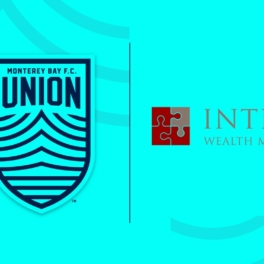

Financial Planning in your 20’s
My partner learned to drive a manual transmission car while in rush hour traffic on a California freeway. Her dad just bought the truck for work and needed someone to drive it home while he followed in his car. He took her out to make the purchase, handed her the keys, and said, “follow me home and don’t crash”.
It’s hard to get started when it comes to financial planning. For many of us out there, our 20s are a time where we find a first career, meet a life partner, buy our first home and possibly start a family. We start paying for rent, utilities, and grocery bills. We get our first credit card, and we probably end up using it too much. In other words, life likes to give us the keys to a car we’ve never driven, drop us on the freeway, and tell us not to cause an expensive accident.
So, whether you’re getting ready to graduate, you’ve landed your first job, or you’re just looking to start gaining control of your financial life, here are a few tips to get started.
1. Budgets are Hard to Make and May not be Necessary
Building a budget is a fantastic way to keep track of your expenses and help ensure that you’re on a solid track financially. They are also time-consuming to develop and maintain. A budget is most effective to adhere to a financial routine or to diagnose over-spending.
As an alternative to budgeting, consider picking one day per month where you look at all of your outstanding debt (credit card, loans, etc.) and your bank balances as a simple net worth summary (savings – debt = simple net worth). When the next month rolls around, check to see if your net worth increased, decreased, or stayed the same. If it increased or stayed the same, then you might not need a budget. You are cash flow neutral or positive and that’s a good thing. If it decreased, then it may be a good time to consider a budget to look into spending habits further.
2. Save First and Save Proportionally
Once you are cash flow positive, it is time to commit to saving. Rather than waiting until the end of the month to see what’s left over after you pay your bills, put a little bit of money aside on the front end from each of your paychecks. It might start out as just a few dollars a week, but every little bit helps. Financial planning is not just about how much you save, it’s about establishing good financial habits which you can refine later on.
Bonus points if you treat savings as a percentage rather than a dollar figure. If $50 a week translates to about 5% of your weekly income, then commit to saving 5% of your income per week as opposed to the $50. That way, as your income increases you continue to increase your savings in tandem.
3. Start Building Your Net Worth
Once you are in the habit of “paying yourself first”, you will need to decide how to allocate your savings. Is it time to throw it in the stock market and shoot for the moon? Nope. The best place to start building your net worth is by tackling high interest debt and establishing a savings cushion. Credit cards or personal loans with high interest rates will act as a headwind against your financial future, and getting those paid off quickly should be a top priority. It is equally as important to build a cushion of between 3-6 months of non-discretionary expenses in a savings account. These funds can help save you in the event of an unexpected bill, and can also give you the flexibility to act on opportunities like a career change.
If you’ve tackled high interest debt and have a solid savings account, then you can focus on retirement savings and other low-interest consumer debt (like a mortgage or student loans). Maximizing your retirement savings by utilizing your employer’s plan and receiving any employer match offered is a great start to building that nest egg.
4. Be Your Own Financial Advocate
Is that your best offer? One simple question could cut down the costs of your internet bill, save you thousands on a major purchase, or even bolster your salary as you start your first career (granted you will want to pose this question more tactfully to a potential employer). Don’t be afraid to ask.
And remember, negotiating is an acquired skill, not a natural talent. If you are feeling nervous start with some low-risk negotiating, like with your internet service provider.
If you are curious, my partner managed to drive the truck home without a scratch. It took four times as long to get home as it took to get there, but she persevered nonetheless. Similarly, building financial security takes time, aggravation, and probably some frustrated shouting along the way. There’s only one way that car is getting home though, and that’s if you drive it.




